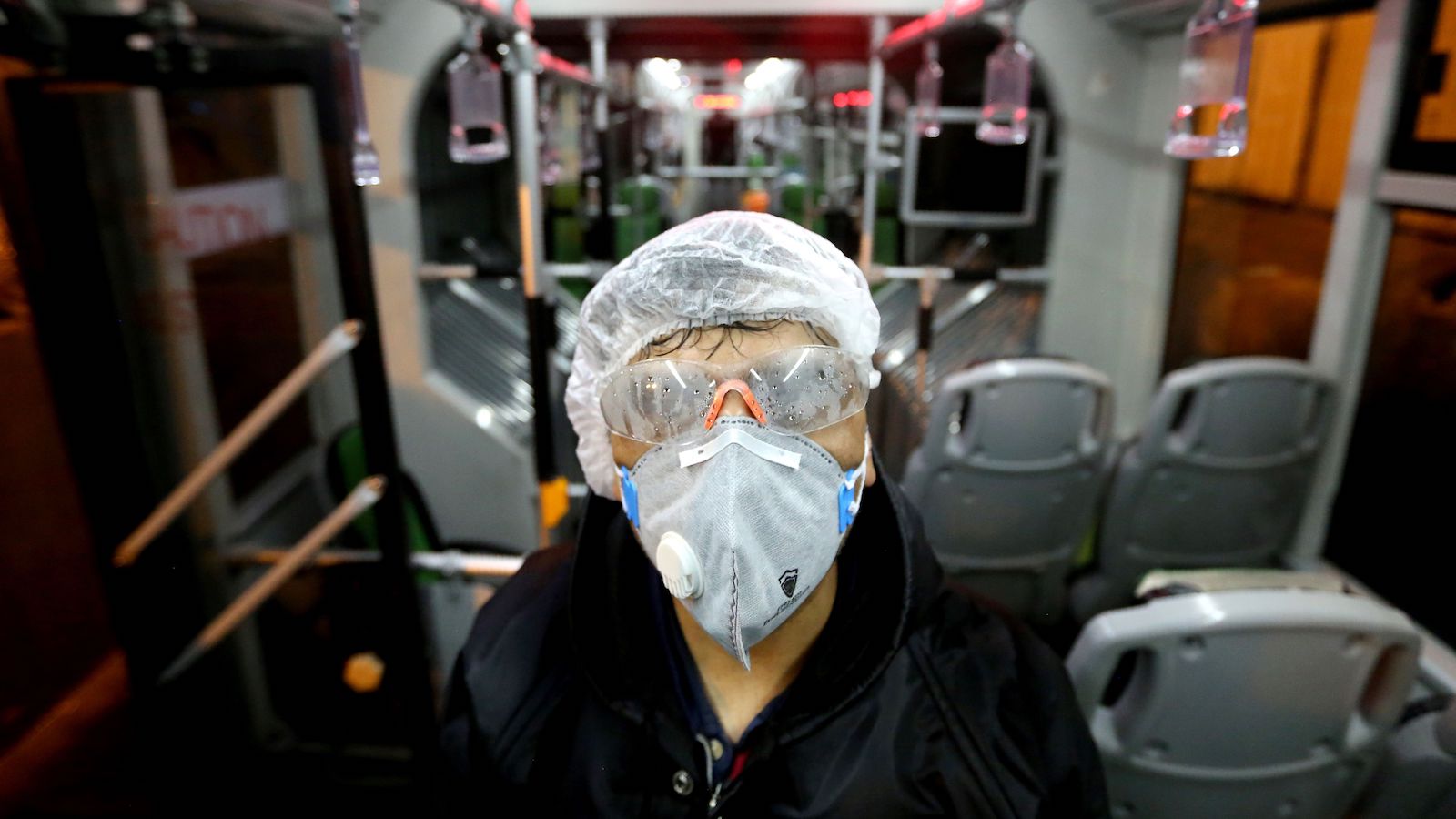How do masks protect us from viruses? 2:44
(CNN Spanish) - Recently, the World Health Organization cautiously admitted that in certain situations, the coronavirus could remain suspended in the air in a closed place and with little ventilation, spreading the disease.
Dr. Elmer Huerta explains in this episode what aerosol spread means and presents several examples where people have been infected in this way.
You can listen to this episode on Spotify or your favorite podcast platform, or read the transcript below.
Hello, I am Dr. Elmer Huerta and this is your daily dose of information about the new coronavirus, information that we hope will be useful to take care of your health and that of your family.
The World Health Organization has just admitted that it is possible that the new coronavirus could spread in the air. Today we will talk about the meaning of that statement.
Recently, a group of 239 scientists from 32 countries published an open letter to the WHO, to take into account recent research indicating that the new coronavirus can be transmitted by aerosols scattered in closed spaces.
The WHO responded quickly and in the review of a technical document on the transmission of the virus - whose last update was on March 29 - cautiously recognized that it could be possible that, in certain situations where a series of conditions are combined, such Since many people spend about an hour in an enclosed space, speak loudly, shout or sing, and the place is poorly ventilated, it may be possible for microscopic droplets of respiratory secretions to remain floating or suspended in the air in that confined space. and be breathed by susceptible people, getting the new coronavirus.
Until now, the WHO only recognized that this formation of microscopic aerosols could occur when, in the hospital environment, the secretions of patients were aspirated with machines.
The WHO cites some examples where a contagion through aerosols may have occurred. For example, the case of a choir is known in Washington state, in which a single infected person infected 53 of 61 choir people, resulting in three hospitalizations and one death.
There is also a known case in which an infected person infected ten members from three families, sitting at different tables in a restaurant in China.
Another case cited by the WHO includes contagion from zumba classes in a gym.
The WHO says that although this possibility may exist, more research is needed to corroborate it, and especially, to know the so-called infective dose of the virus, that is, the amount of virus necessary to spread it.
It is important to know that this mechanism, the contagion of a virus by aerosols, is not new. That is a very important contagion mechanism for one of the most contagious viral diseases that exist, measles.
At this time when many societies are beginning to open to allow return to workplaces, schools, universities, restaurants and other places of
meeting, it is very important that the mechanism of aerosol contagion is known and preventive measures are dictated.
We think that this knowledge, that the new coronavirus can be transmitted by air in closed spaces, should not be cause for alarm, but should reinforce our prevention measures, which should include avoiding meetings in closed places, wearing masks to protect ourselves. and protect others and keep a distance of at least two meters between person and person.
It is of special interest that in places where there is air conditioning, the recirculation of air from the same room is avoided, and that despite causing discomfort due to the temperature, the windows of the rooms are opened.
It also says that cleaning the air conditioning ducts is not beneficial.
Send me your questions on Twitter, we will try to answer them in our next episodes. You can find me at @DrHuerta.
If you think this podcast is useful, please help others find it by rating and reviewing it in your favorite podcast app. We'll be back tomorrow so be sure to subscribe to get the latest episode on your account.
And for the most up-to-date information, you can always go to CNNEspanol.com. Thanks for your attention.
If you have any questions, you can send them to Dr. Elmer Huerta through Twitter. You can also go to CNNE.com/coronaviruspodcast for all the episodes of our podcast “Coronavirus: Reality vs. fiction".
coronaviruscovid-19

